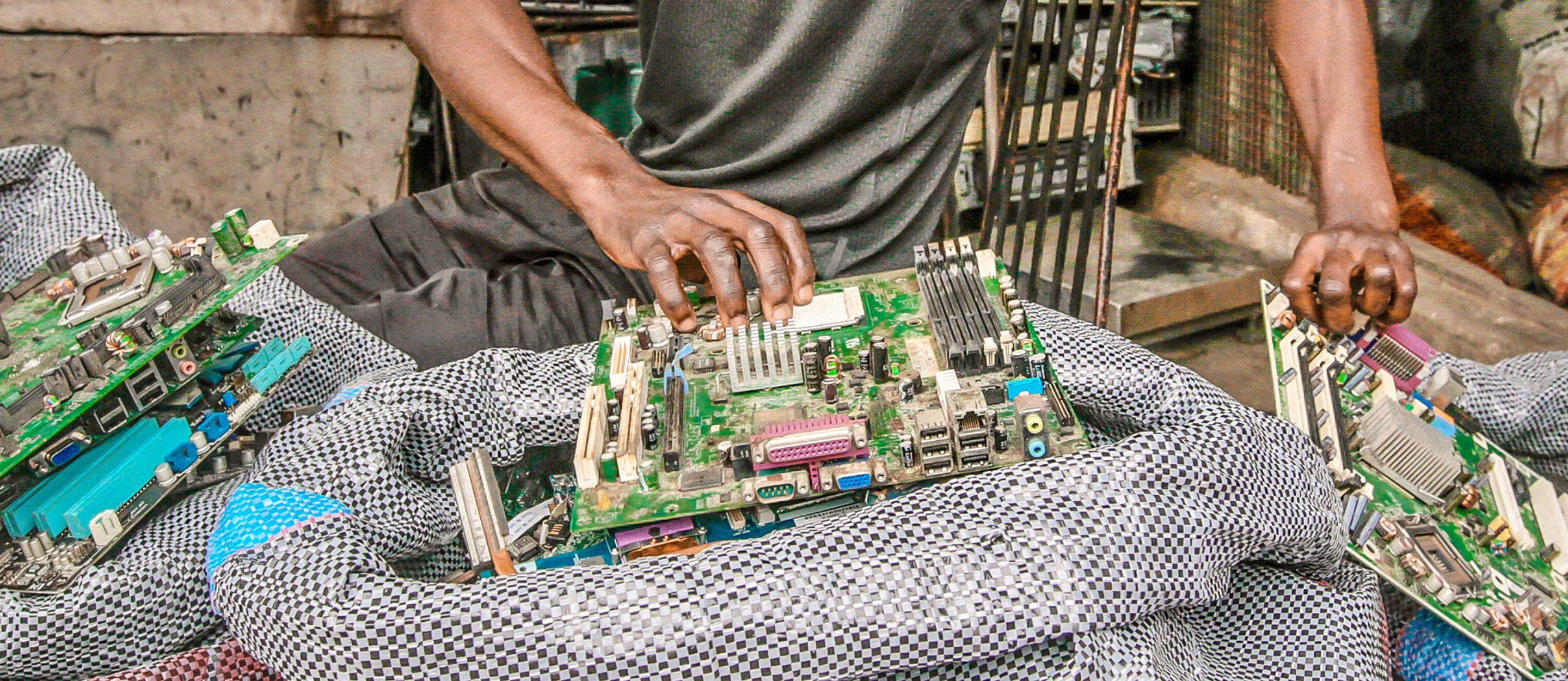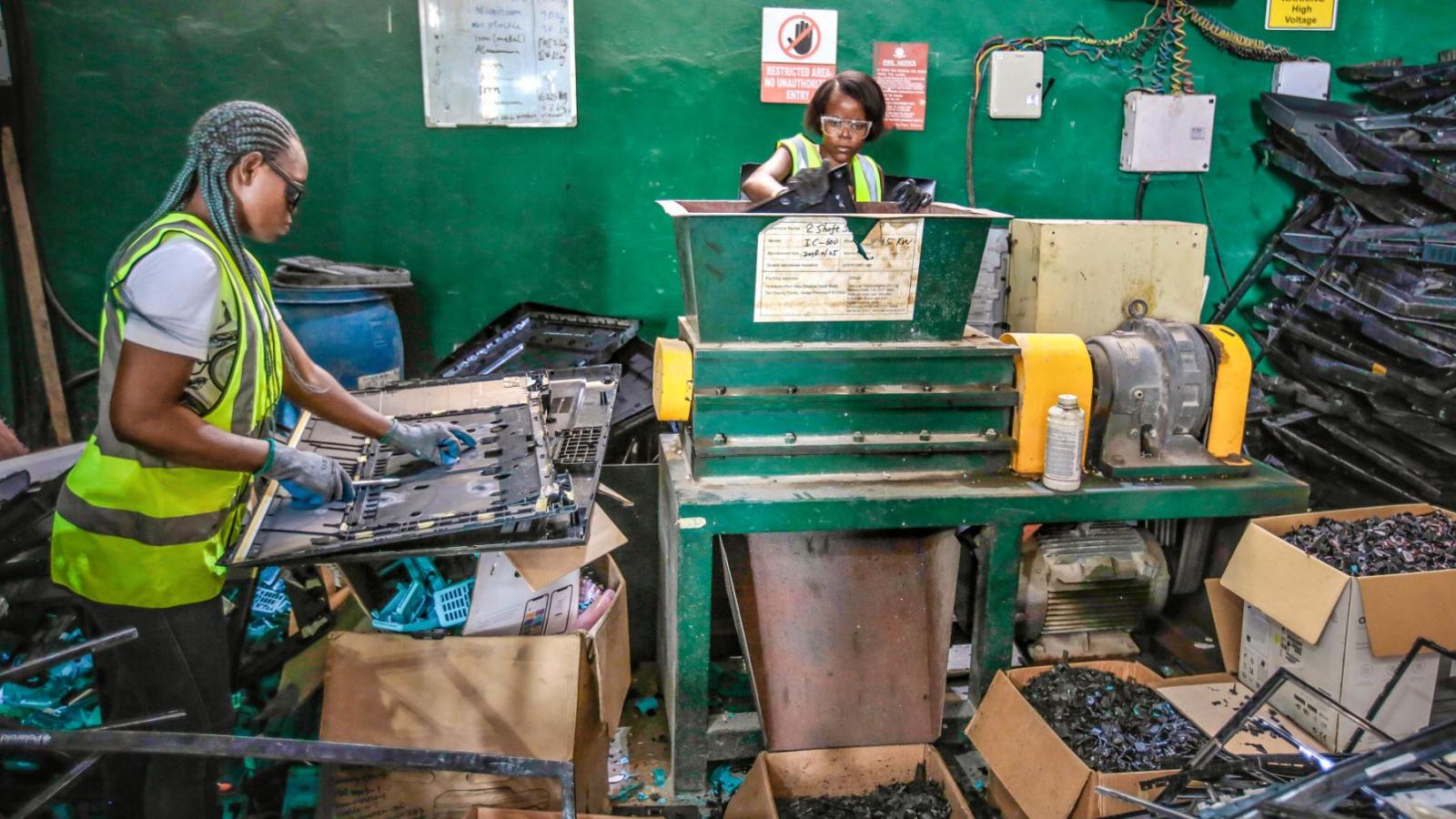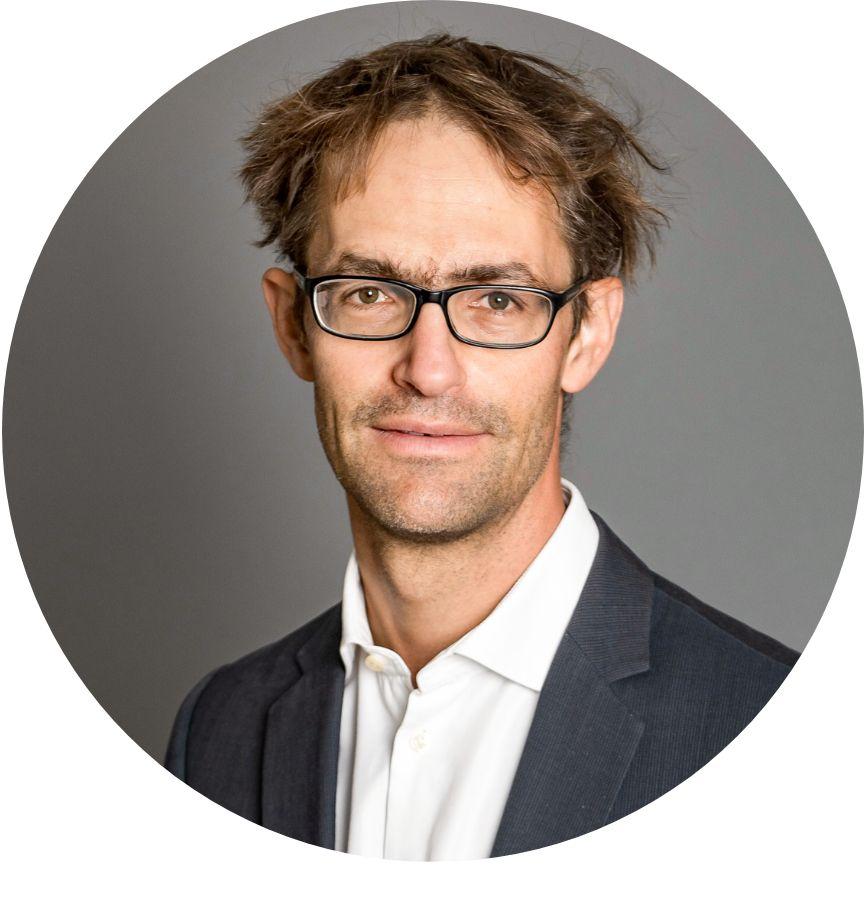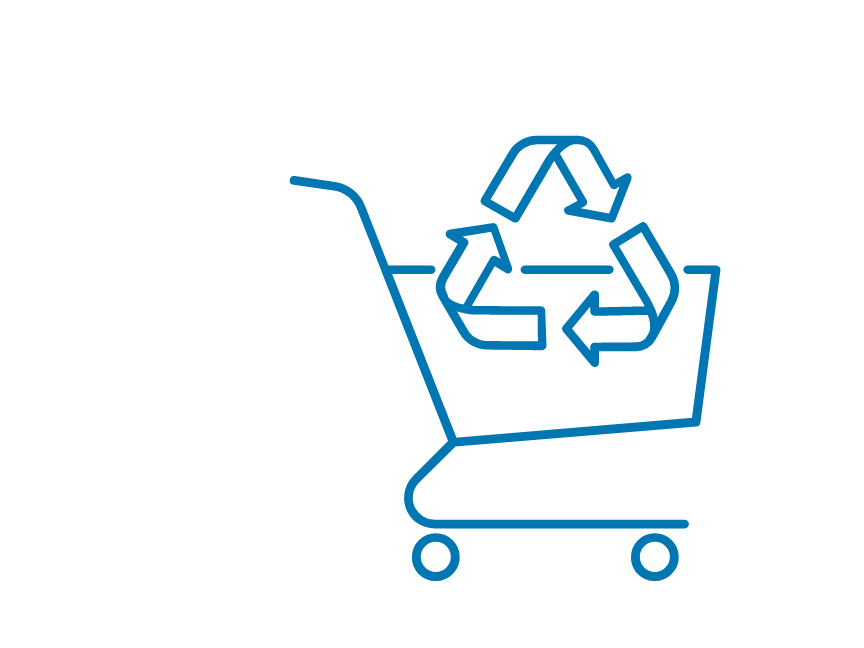The pilot project E-waste Compensation as an International Financing Mechanism in Nigeria was initiated by the PREVENT Waste Alliance as a practical example of innovative and scalable solutions for building a circular economy. As a platform for knowledge exchange and international cooperation, it brings together organisations from the private sector, academia, civil society and public institutions along global value chains. The PREVENT Secretariat is managed by GIZ. The PREVENT Waste Alliance was launched by the German Federal Ministry for Economic Cooperation and Development (BMZ).

‘Recycling is also a question of social justice’
The Institute for Applied Ecology in Freiburg has been supporting a project on e-waste. Expert Andreas Manhart talks to Katrin Gänsler about insights, financing and responsibility.
Mr Manhart, tell us about the innovative approach of the pilot project in Nigeria.
When you handle e-waste properly you get valuable fractions like semi-conductors and cables that contain copper. That all gets recycled.
But at the same time, you are left with a significant non-valuable fraction that contains pollutants. For example, the backlighting in old computer monitors contains mercury, which escapes into the environment if the bulbs break. There is no money to be made from collecting these components and disposing of them properly. On the contrary, professional disposal costs money. And this is where the pilot project comes in.

How exactly?
Professional recyclers have to manage all e-waste fractions properly. This usually involves an extra charge. Recyclers can only work profitably if they are also remunerated for the valuable service of hazardous waste disposal. We were able to demonstrate that proper recycling is possible in Lagos, too, if this kind of additional funding stream is available. For practical reasons, we decided to focus on computer monitors, because they are relatively complex. If you can recycle monitors, then you can manage pretty much any kind of e-waste. We were able to demonstrate this clearly.
What will happen now that the pilot project has ended?
After the pilot project, the companies involved – Closing the Loop, Hinckley and Verde Impacto Nigeria – will continue their work. Closing the Loop has developed a voluntary compensation component for e-waste, which guarantees funding beyond the end of the project. But the question for the future is whether a project like this represents a systematic step towards something bigger. Can a broad-based financing system be established to make high-quality, comprehensive recycling possible?
“Ultimately, this is a highly political issue: who should pay for e-waste to be recycled properly?”
How important is the policy aspect, for example legislation to regulate how e-waste is handled?
Lobbying is not in our remit. The decision on how to deal with locally generated e-waste has to be taken in Nigeria. It is important for us to demonstrate that this is a sector that only works properly with sound financing instruments. There is no miracle machine that can turn dirt into gold. It is not possible to wave a magic wand and recover valuable raw materials from plastics that are contaminated with flame retardants. Harmful materials have to be managed properly and this requires not only technical solutions but also funding.
Ultimately, this is a highly political issue: who should pay for e-waste to be recycled properly? If nothing is done, pollutants may be released, which means that people will ‘pay’ with their health. And it is the population groups that consume the least that are usually worst affected. So proper recycling is also a question of social justice.

Geographer Andreas Manhart is a senior researcher at the Institute for Applied Ecology in Freiburg. He has been working in the circular economy for many years.
